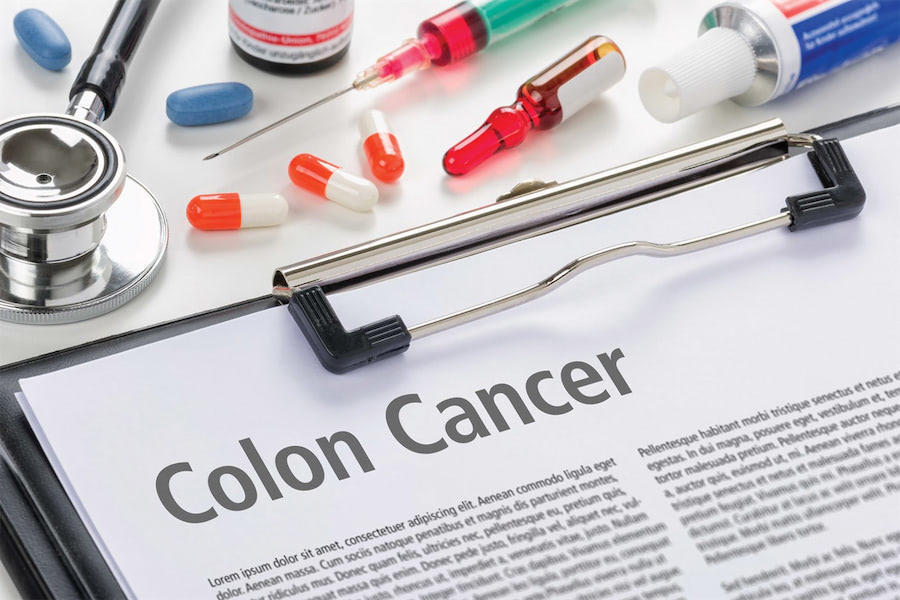Colon cancer takes tens of thousands of lives every year, but with the right knowledge and proactive steps, you can not only protect yourself against this terrible disease but successfully detect it early should symptoms arise. Prevention is paramount in avoiding colon cancer, and fortunately, there are some simple lifestyle changes that can be incorporated into your daily routine to ensure optimal long-term health benefits. In this blog post, we will discuss how individuals can take proactive measures to reduce their risk of developing colon cancer, as well as what signs and symptoms require immediate evaluation by a medical specialist. By arming yourself with this information, you'll be able to spot any potential issue before it's too late!
What is colon cancer, and what are the risk factors for developing it
Colon cancer is one of the leading causes of death in the United States, and it is essential to understand what increases your risk of developing this disease. Colon cancer develops when cells within the lining of your colon grow uncontrollably, spreading throughout your body. Common risk factors for its development include advancing age, a family history of colon cancer, lifestyle factors such as smoking or excessive alcohol consumption, and a lack of physical activity. Colonoscopy screenings are recommended at regular intervals to catch any potential issues early on so that they can be treated quickly before they spread. Colon cancer is a serious medical condition, and understanding potential risk factors can help reduce your chances of having to deal with it someday.
How to reduce your risk of developing colon cancer through diet and lifestyle changes
Taking proactive steps to reduce your risk of developing this type of cancer is a must and starts with simple changes to your diet and lifestyle. Eating more fruits and vegetables, staying active, and avoiding smoking are great starting points for lowering your chances. Additionally, health professionals suggest taking an aspirin every day as long as no contraindications exist - this could help to stop cancer cells from growing at an early stage! As always, communicate with your healthcare provider regularly to ensure your Colon Cancer Risk remains low.
The benefits of early detection and screening for colon cancer
Of the various types of cancer, Colon Cancer is one of the most dangerous. By detecting it early and performing screening tests, you can ensure that Colon Cancer does not spread to other parts of the body. Early detection and screening for Colon Cancer can be extremely beneficial for individuals, even if they have no known family history of the disease. Through such tests, concerns about Colon Cancer can be addressed, and potentially life-saving treatments can be administered in time. If Colon Cancer is properly caught early on and monitored through ongoing screenings, then those suffering from this disease will have a greater chance of preventing its devastating effects from fully taking hold.
What to do if you experience any symptoms that could be indicative of colon cancer
Knowing the warning signs and symptoms of Colon Cancer, such as unexplained changes in bowel habits or blood in the stool, can help you take steps to protect your health early. If you experience any of these symptoms, make sure you don't wait - consult your doctor right away and make them aware of your concerns. It's a simple action that could save your life, as Colon Cancer causes spreads quickly and easily if not caught in time. With timely diagnosis and proper treatment, Colon Cancer can be tamed, so don't delay - be proactive today!
How to get more information about colon cancer prevention and detection
Colon cancer is a serious disease that can be devastating if not detected early. There are steps you can take to learn more about this dangerous condition and how to prevent it from developing. Since Colon Cancer causes cells to spread, it's important to know the risk factors and ways to detect it before cancer gets worse. The best way to get the most up-to-date information about Colon Cancer prevention and detection is to consult with your doctor or health care provider. They can provide valuable insight into what you should do, as well as which screenings you may need based on your individual health history. Staying informed is key when it comes to Colon Cancer, so be sure to equip yourself with the knowledge necessary to stay safe!
Through eating a balanced diet with plenty of fiber, engaging in regular physical exercise, avoiding alcohol and smoking, getting vaccinated for certain infections, learning about family history and genetics, visiting your doctor for regular screenings after the age of 45 (or earlier if family history dictates), or seeking treatment for any symptoms that could indicate a problem related to colon cancer. Taking these preventative steps will play an integral role in protecting oneself from becoming vulnerable to this type of cancer. Furthermore, being proactive can give peace of mind if prevention doesn't come into play, as seeking treatment as soon as possible is key to reducing the severity of its effects.

